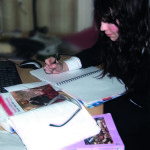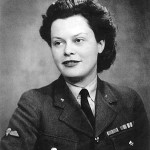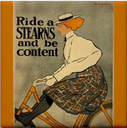Your shopping cart
-
-

Suffragettes
9:31 pm By HerstoriaHow Britain’s women fought & died for the right to vote Frank Meeres is a senior archivist and author living and working in Norwich where he has Read More » -

HerStoria Magazine for sale
1:57 pm By HerstoriaGreat news - you can now buy digital and print editions of HerStoria Magazine back-issues. Digital editions are available for all magazines at the bargain introductory price Read More » -

Bullet Proof Ms
12:51 pm By HerstoriaWith the sad news of the death of Stephanie Kwolek, the inventor of Kevlar, reproduced here is the short piece written by Michael Williams about her, Read More » -

Where are the Women in School History?
7:38 pm By HerstoriaSue Johnson takes an historical look at the curriculum ….. `Why didn’t I know that before?` and `… but Women’s History is real history!’ are both Read More » -

Railwaywomen: from backstage heroine to train driver
4:04 pm By HerstoriaRailways are imbued with maleness to their very core. Everyone connected with the creation and operation of railways was male: business men and financiers, architects and Read More »
-
 wendy bowen: In the 1939 census ROSIE ELLEN FIELDSEND was an E »
wendy bowen: In the 1939 census ROSIE ELLEN FIELDSEND was an E » -
 Patricia Diaz: To Jennifer C. Kelsey Thank you for your articl »
Patricia Diaz: To Jennifer C. Kelsey Thank you for your articl » -
 Wendy Joy Osben MRS: I am trying to trace another part of the family ca »
Wendy Joy Osben MRS: I am trying to trace another part of the family ca » -
 Catherine Miloni: I am looking for anyone with Hawaiian descent, who »
Catherine Miloni: I am looking for anyone with Hawaiian descent, who » -
 debbie cameron: Hi Jean i don't know if you will pick this up aft »
debbie cameron: Hi Jean i don't know if you will pick this up aft »
-









